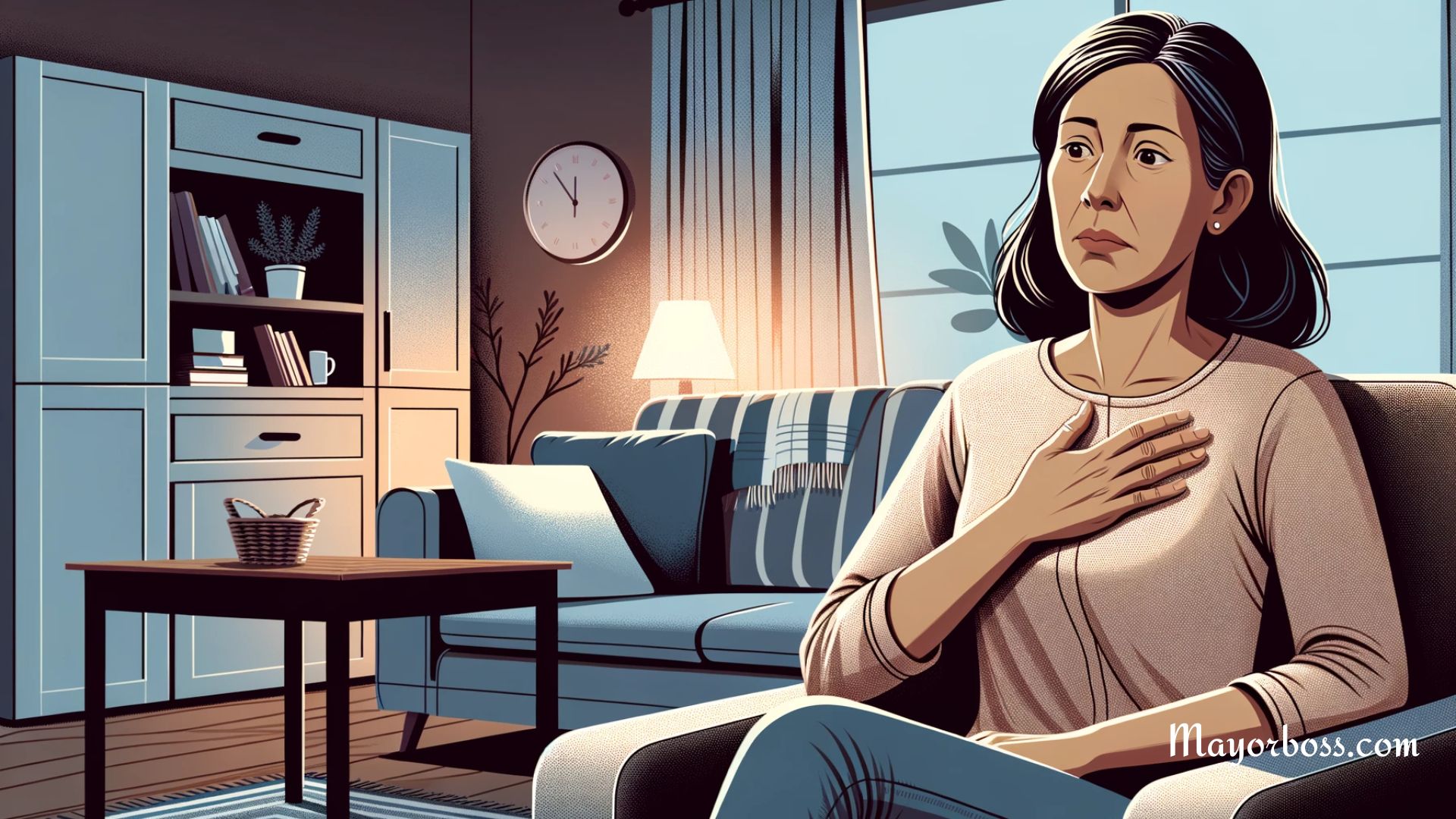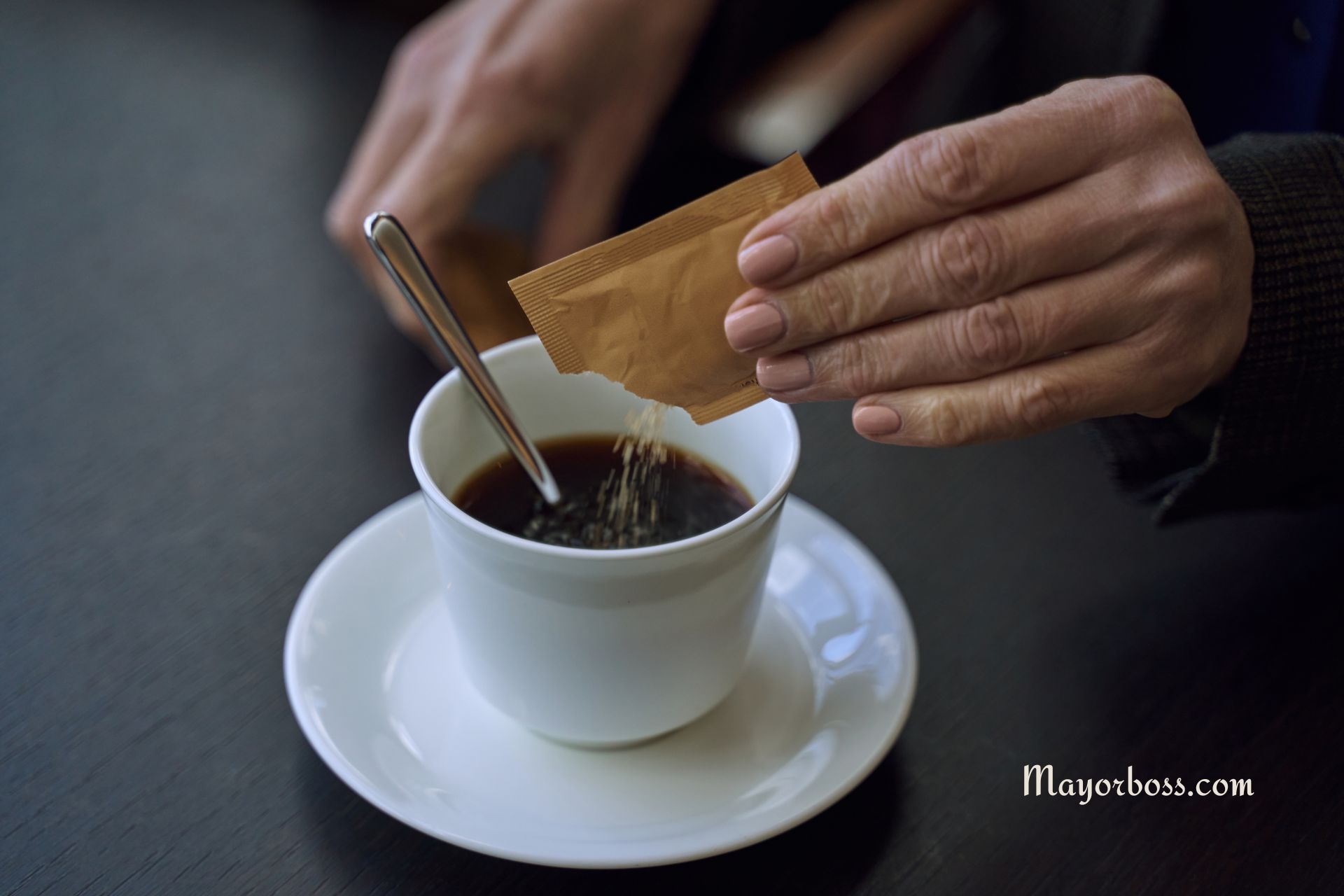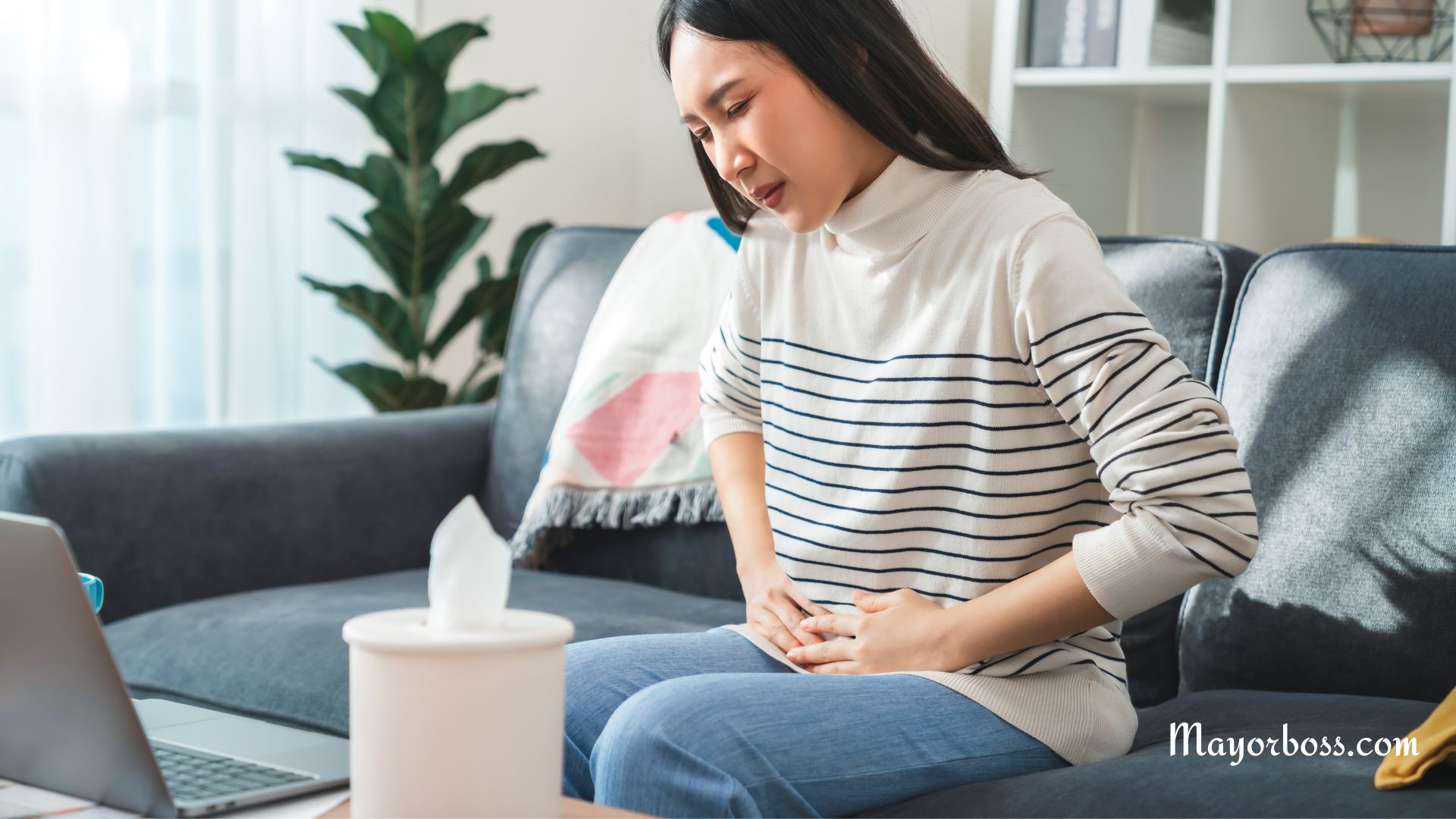Heart Palpitations in the Evening: Causes, Symptoms, and Treatment
Experiencing heart palpitations can occur at any time, whether during the day or at night. While they might seem concerning, they are often not a sign of a serious health issue. In fact, nighttime palpitations usually aren’t harmful. Many individuals experience these sensations during their busy day but only become aware of them at night when distractions are minimal and the environment is quieter. These palpitations are more noticeable when you are in a state of rest, whether sitting calmly, lying down, or trying to sleep.
As the day winds down and you enter a more reflective and quieter state, the sudden recognition of your heartbeat’s irregularities can be unnerving. This article briefly overviews causes, symptoms, and treatment options for heart palpitations in the evening.

What are Heart Palpitations?
Heart palpitations are sensations where your heart feels like it’s pounding, fluttering, or beating irregularly. They can occur at any time, but specific factors might be at play when they happen in the evening.
Common Causes of Heart Palpitations in the Evening
- Stress and Anxiety: As you reflect on the day’s events, stress and anxiety can peak, triggering your body’s fight-or-flight response, which can lead to palpitations.
- Caffeine and Stimulants: Consuming caffeine or other stimulants in the afternoon or evening can keep your nervous system active, leading to palpitations.
- Alcohol and Tobacco Use: Using alcohol or tobacco, especially in the evening, can stimulate your heart and cause palpitations.
- Menopause: Fluctuations in hormones, especially during menopause, can trigger palpitations.
- Medications: Some medications, especially those for asthma, thyroid disorders, or depression, can have palpitations as a side effect.
- Dietary Choices: Heavy meals, especially those high in carbohydrates or sugars, can cause palpitations. Spicy or acidic foods can also trigger them, particularly if you’re prone to heartburn or GERD.
- Dehydration: Not drinking enough water throughout the day can lead to dehydration, which can cause heart palpitations.
- Electrolyte Imbalance: Low levels of critical electrolytes like potassium and magnesium, often related to diet or hydration, can affect heart rhythm.
- Physical Overexertion: Engaging in intense physical activity in the evening can lead to palpitations as your heart rate increases during the workout and takes time to return to normal.
- Sleep Disorders: Conditions like sleep apnea, where breathing repeatedly stops and starts, can cause heart palpitations.
- Over-the-counter Medications: Some over-the-counter medications, including cold and flu remedies or certain herbal supplements, can contribute to palpitations.
- Digestive Issues: Gastroesophageal reflux disease (GERD) or other digestive disorders can sometimes mimic or cause heart palpitations, particularly after evening meals.
- Hypoglycemia: Low blood sugar, especially for those with diabetes or other metabolic conditions, can cause palpitations.
- Postural Changes: Sudden changes in posture, like standing up too quickly, can lead to a brief episode of palpitations.
- Hormonal Fluctuations: Apart from menopause, other hormonal changes (like those associated with thyroid disorders or the menstrual cycle) can also cause palpitations.
- Anemia: Low levels of red blood cells can lead to increased heart rate and palpitations.
- Excessive Fluid Intake: Drinking excessive fluids, especially before bed, can strain the heart and lead to palpitations.
- Heart Conditions: Underlying heart conditions, such as arrhythmias or heart disease, can cause palpitations, particularly in the evening when your body is transitioning to a resting state.
Symptoms of Nighttime Palpitations
Individuals experience heart palpitations when lying down in different ways. Among the most common are:
- Irregular Heartbeat: You might feel like your heart is skipping beats, fluttering, or beating too fast or too slowly.
- Pounding Sensation: A forceful beating of the heart that feels unusually strong or vigorous.
- Chest Discomfort: While not always present, some individuals may experience mild discomfort or a sense of pressure in the chest area.
- Breathlessness: Shortness of breath or a feeling of being unable to take a deep breath, often accompanying the palpitations.
- Dizziness or Lightheadedness: A feeling of being light-headed or dizzy, especially if the palpitations are pronounced.
- Sweating: Unusual sweating, which may occur even if the room temperature is comfortable and you’re not engaged in physical activity.
When to See a Doctor
You should consult a healthcare professional if palpitations:
- If palpitations are accompanied by severe chest pain, significant shortness of breath, fainting, or severe dizziness.
- If you have a history of heart disease or palpitations, it is a new occurrence for you.
- If palpitations are frequent, persistent, or disrupting your sleep.
Managing Evening Palpitations
Lifestyle Adjustments
- Stress Management: Practice relaxation techniques like deep breathing, meditation, or gentle yoga in the evening.
- Limit Caffeine and Alcohol: Reduce or eliminate caffeine and alcohol consumption, especially later in the day.
- Regular Exercise: Engage in regular physical activity, but avoid strenuous exercise close to bedtime.
- Healthy Sleep Habits: Establish a consistent sleep routine to help your body and heart settle into a restful state.
Medical Treatment
- Medication Review: Discuss any current medications that might be contributing to palpitations with your doctor.
- Treatment of Underlying Conditions: Address any identified heart conditions or hormonal imbalances with appropriate medical treatment.
- Monitoring: In some cases, your doctor may suggest monitoring your heart rhythm with a Holter monitor or other devices.
Frequently Asked Questions
Why do palpitations occur more frequently in the evening?
Evening palpitations may be more noticeable as you’re quieter and more focused on your body. Additionally, the cumulative effect of day-long stressors, caffeine, or meals can manifest more prominently in the evening.
Can diet impact evening palpitations?
Yes, a diet high in processed foods, sugar, and stimulants can contribute to palpitations. Focus on a balanced diet with plenty of fruits, vegetables, lean proteins, and whole grains.
Are heart palpitations always a sign of a serious problem?
Not always. Often, palpitations are harmless and related to stress, caffeine, or lifestyle factors. However, it’s important to get evaluated by a healthcare professional to rule out any serious underlying conditions.






